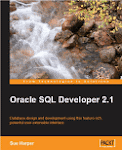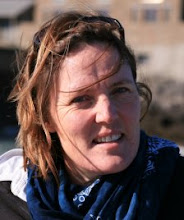This week I'm in Washington DC at the ODTUG annual conference. For those of you who don't know, this is a well established Oracle Developer's User Group, originally focused primarily on Oracle Designer (then CASE) with a close second in Oracle Forms.
Today's keynotes saw two old familiar faces; Marco Tilli and Sohaib Abassi, both long time friends of the conference and in their time, were Volley Ball players on whichever beach or piece of sand wherever that year's ODTUG conference was being held. Back, this time not talking about Forms, Portal or Designer, but how we should all by now be more aware of SOA, of how business services can be reused, of integration and of the whole importance of data integration and its importance in the industry today.
With Java and the whole J2EE explosion, ODTUG have had to reinvent themselves. Something I was not sure they'd do with success, but I think they have cracked it. The halls are buzzing with old familiar faces. Some developers are not currently working with Oracle technology, yet still they return, the contacts and friends made at this event too important to lose. Other developers are reinventing themselves, learning new technology and bringing wisdom and experience to the table. This year, not too many grumpy old men!
Interesting too was the large number of first timers at the conference this year. I'm always amazed at this, the number of newbies arriving at the various conferences I attend. It's always a healthy percentage.
This year's ODTUG conference offers half day hands-on sessions alongside regular presentations. The weekend prior to the event, they ran a full day Web Architecture Symposium, which I have only heard highest praise for, and a couple of full day hands on sessions. I'd say attendees can get their monies worth if they participate in all on offer, specially if they get involved and mingle and talk, listen and learn!
Peer Reviews
The first talk I attended was Kent Graziano's talk, "Data Design Reviews: Using Extreme Humiliation to Ensure Quality Data Models". What a title!
Using the peer reviews they use within his department as a basis for his talk, he told us about building effective data models. They have a fixed set of standards, build logical models, which must conform to those standards, and have rigorous peer reviews. Once accepted, these logical models are then transformed to physical models, which have to conform to standards, and then have rigorous reviews of these. If and when these all pass and are accepted, the DDL is generated and reviewed before being passed on to the department that consumes them. They do not spend months on building models before reviews, but have incremental builds, so the review is brief, less than an hour, and they have them often.
I think the rigorous could be scary, specially for new folk, but the peer to peer knowledge transfer and the team work must outweigh any disadvantages. I loved the sound of the approach. (Specially having seen a few sick models in my time) I also think this practice can and should be translated to any part of a company - from those writing coding, to those writing papers and producing power point presentations. You might think this would slow down the pace, but I suspect teams would be more efficient, and the resulting work of a much higher quality. Aah, by the way, Kent stressed, "it's business, it's not personal" For example in a peer review, when you criticize the name of entity, it's not because you don't like it, it's because it doesn't comply to the standard. I think so often we are too defensive, we assume someone is critiquing us, our approach, but if you have a set of standards, then things are less subjective and in the end, better for the good of the project and in the end, the company.
If you can, take a look at Kent's paper on the ODTUG site. It should be up after the conference. Kent is also author of a few books on data models, if you are on the lookout for one.





